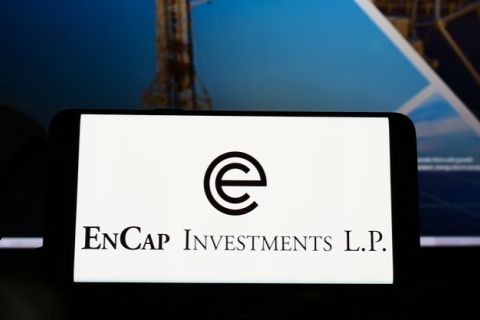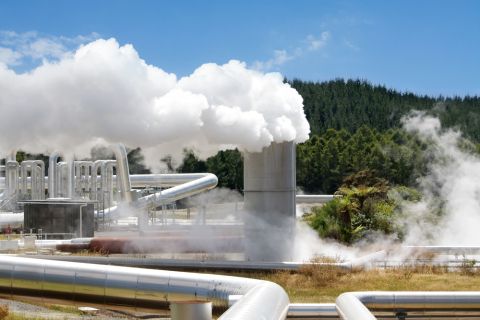The second half of 2000 is shaping up very well. The federal government wants to help stave off oil production decline, operators are increasing their drilling budgets, and the capital markets are opening up again. The Department of Energy has seen the light-and I think $1.55 gasoline is what flipped its switch. In early June, DOE's National Petroleum Technology Office in Tulsa kicked off what it calls "PUMP," or Preferred Petroleum Upstream Management Practices. This is a nationwide effort to help slow or halt declining oil production, and indeed, to boost it by 200,000 barrels a day by 2005. PUMP aims to prevent premature abandonment of marginal fields and/or to increase their output. DOE is soliciting ideas for test projects on best management and operating practices and technologies. It's also asking operators to form regional best practices councils where participants tackle production problems and share their solutions through existing technology transfer networks and a new interactive Internet site. DOE will pay up to 50% of the costs of producers' field tests that demonstrate new ideas. This sounds like a duplication of what the Petroleum Technology Transfer Council and regional trade associations have been doing for several years. It also resembles the model used by many of the new web-based oilfield procurement and knowledge management sites cropping up. The difference is that DOE is willing to invest money in the test projects. DOE is asking for proposals by August 9. It announced the program June 7. Funny, isn't it? Most federal agencies take forever to do anything meaningful, yet they demand that busy oil and gas companies submit proposals in eight weeks in the middle of prime vacation season. For detailed information and solicitation forms, see the National Energy Technology Lab website, www.netl.doe.gov/buisness/solicit. The real barriers to increased oil production-and things government could address-are access to federal acreage, tax deductions for geological and geophysical expenses and incentives for more exploration. Even so, the macro- fundamentals are very good right now. Lehman Brothers' midyear E&P spending survey polled 326 public, government-owned and private firms. In aggregate, they plan an 18.2% increase in worldwide E&P outlays this year-versus the 10% increase they had estimated last December. U.S. expenditures will advance about 17%, mostly propelled by the 227 independents who responded. They project spending growth of 26%. The 14 majors said they were hiking U.S. spending 8.8%. Canadian expenditures are estimated to rise a stunning 44.7%. International spending is slated to rise nearly 15%, compared with the modest 5.7% increase estimated in the December 1999 survey. West African offshore drilling leads the way. Shallow water activity in the Gulf of Mexico is finally coming around, one of the last domestic provinces to recover. According to Dain Rauscher Wessels, the utilization rate for premium, independent-leg cantilever units working in water exceeding 250 feet deep is now 97%. Anecdotal evidence: Global Marine announced that Coastal Corp. just extended three of its jackup contracts at significant dayrate increases. R&B Falcon said it will reactivate some of its stacked rigs. More good news: the recovery is starting to make its way to Wall Street, where in recent weeks several newcomers have begun trading. Drill pipe manufacturer Grant Prideco (NYSE: GRP) spun off of Weatherford International. Titan Energy and Unocal rolled up more than 1 trillion cubic feet equivalent of proved reserves in the Permian Basin to form Pure Energy Resources (NYSE: PRS). Houston-based Universal Compression Holdings Inc. just completed a $148.5-million initial public offering (NYSE: UCO). The company rents, sells, operates and maintains gas compressors for the natural gas industry. And, Hydril Co. just filed for its roughly $150-million IPO via Salomon Smith Barney The 67-year-old Houston firm makes drillpipe connections and equipment such as blowout preventers and subsea mud lift systems. Our scouts tell us that two or three E&P companies very recently signed documents with their investment bankers to begin the IPO process. Numerous firms will set sail with secondary offerings as soon as market winds blow more favorably. Do you have producing properties to divest? Are you seeking certain types of properties to augment your position in a particular play? If so, sign up now to attend our first annual Producing Property Exchange. PPX is scheduled for August 15 and 16 at the George R. Brown Convention Center in Houston. PPX will bring together property buyers, sellers and intermediaries to kick off the fall selling season. At press time more than 100 booths had been reserved. Our co-sponsors are EnCap Investments LC, John S. Herold Inc., and Madison Energy Advisors Inc. To register, just call 888-707-5812. We'll see you there.
Recommended Reading
Aggreko ETS Acquires Solar Project in Texas
2024-02-01 - Aggreko Energy Transition Solutions will oversee construction, own and operate the clean energy project in support of a Texas energy producer’s drive to decarbonize operations.
RIC Energy Sells Seven Solar Plants in New York to Radical Power
2024-03-22 - In recent months, RIC Energy sold 13 photovoltaic plants in the state of New York with a total capacity of 70 MW to various companies.
RIC Energy Sells 20 MW of Solar Plants to Luminace
2024-03-04 - RIC Energy says the facilities are expected to provide 100% clean energy to more than 5,000 homes participating in the utilities’ community solar programs.
EnCap Launches Bildmore to Invest in Hard-to-finance Clean Energy
2024-03-11 - In an effort to support hard-to-finance clean energy projects, EnCap Energy Transition Fund is launching Bildmore, a platform expected to invest in up to 15 third-party battery storage, solar and other energy transition projects per year.
Devon Energy Leads $244MM Funding Round for Fervo Energy
2024-02-29 - The funds will finance Fervo Energy’s next phase of growth as it puts to use oil and gas technology and techniques to scale geothermal energy.





